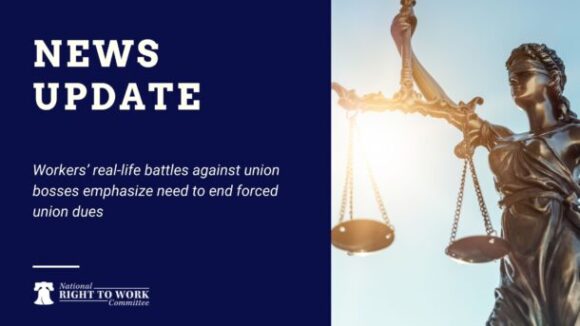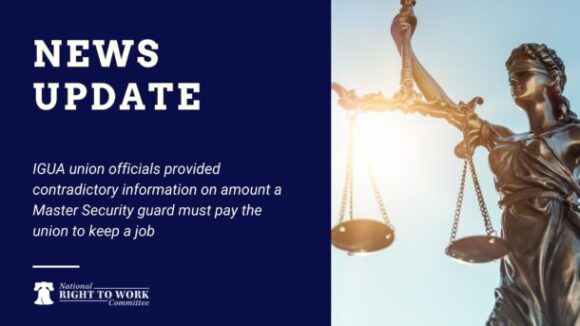GOP’s ‘Dangerous Liaison’ With Union Bigwigs
Josh Hawley distances himself from pro-Right to Work pledges, aligning with union bosses like the Teamsters, despite their history of corruption.
The liberal media in the Northeast is dominated by The New York Times, The Boston Globe and the Washington Post. In a period of two weeks, all three have published articles critical of big labor’s power and influence over the political process. The latest is a Washington Post editorial bemoaning the power and influence of the teacher’s unions in Montgomery, Maryland. Fact is the article could be written in most counties in the United States but it’s progress, none the less. If they really wanted reform, they would endorse a National Right to Work law.
In Montgomery County, teachers union has a grip on politics
Wednesday, July 7, 2010
IN MONTGOMERY COUNTY, candidates for public office who have received the teachers union’s endorsement ahead of this fall’s Democratic primaries must feel as if they’ve won the lottery. The union, with the help of highly unusual cash “contributions” from some of its anointed candidates, sends out glossy, targeted mailings on their behalf. It places advertisements and yard signs. And it distributes thousands of its “Apple Ballots,” listing endorsed candidates, to voters at polling stations on Election Day.
Now the teachers union, known as the Montgomery County Education Association, is going a step further: It’s organizing a poll and inviting its favorite candidates to append their own questions. If the trend continues, union-backed office-seekers won’t have to bother campaigning at all, or even leaving the house. The MCEA will take care of everything.
For ethically tone-deaf candidates in tight races, the temptation may be strong to play the union’s game and write checks to participate in the MCEA’s campaign on their behalf. For much less than it would cost them to arrange mailing and polling on their own, candidates get professional campaign assistance and a major leg up on their opponents. In the case of the mailings and advertisements, candidates are asked to “contribute” up to $6,000 to the union to help defray the cost of printing and distribution — a rare example of candidates giving money to an interest group rather than vice versa. In the case of the poll, candidates pay the pollster directly. Both services are rendered at cut-rate prices and can save candidates many thousands of dollars.
But in both instances, the democratic system in the county is distorted — and risks being corrupted — in the same way: A single special interest is taking over critical parts of political campaigns. In the process, candidates become indebted to an interest group that will seek contract concessions and other benefits worth tens or hundreds of millions of taxpayers’ dollars. Why can’t the teachers union do what every other interest group does — raise money from its own membership to conduct political campaigns?
No one doubts the importance of teachers to the vibrancy and success of any school or community, and Montgomery’s schools are among the nation’s best. The issue here is different: whether a county whose fiscal health is as shaky as Montgomery’s can afford for its elected officials to be in the thrall of one powerful union. In the recent past, that arrangement has translated into officials rubber-stamping unsustainable budgets and unaffordable contracts. The school system, which accounts for more than half of all county spending, devotes about 90 percent of its budget to salary and benefits.
This year, a number of union-backed candidates have stood up to MCEA by refusing to “contribute” to the union for the mailings or take part in the union-organized poll. Their motives vary. Some may find the union’s practices ethically dubious; some are sending a message of fiscal restraint; some may be reading the political tea leaves. In any case, it’s a salutary trend. Montgomery County, with nearly a million residents, is a broad and varied place composed of scores of constituencies. If state and local elected officials become dependent on just one, they lose the ability to fairly balance competing interests. In the past, county politicians have lost sight of that basic principle.

Josh Hawley distances himself from pro-Right to Work pledges, aligning with union bosses like the Teamsters, despite their history of corruption.

Workers’ real-life battles against union bosses emphasize need to end forced union dues

IGUA union officials provided contradictory information on amount a Master Security guard must pay the union to keep a job